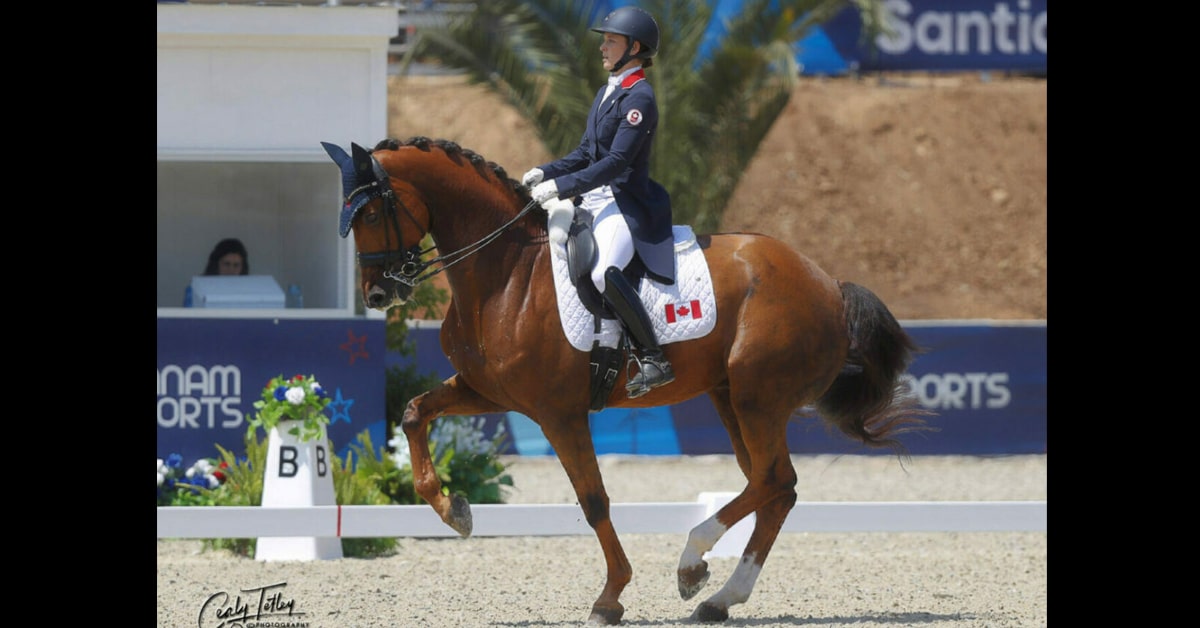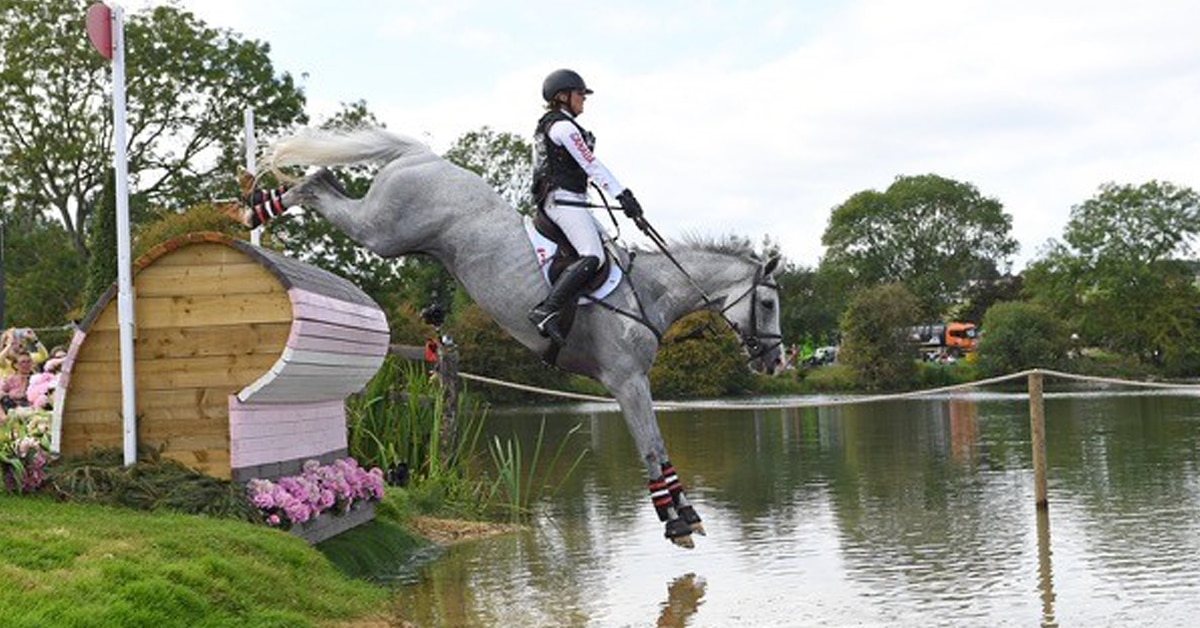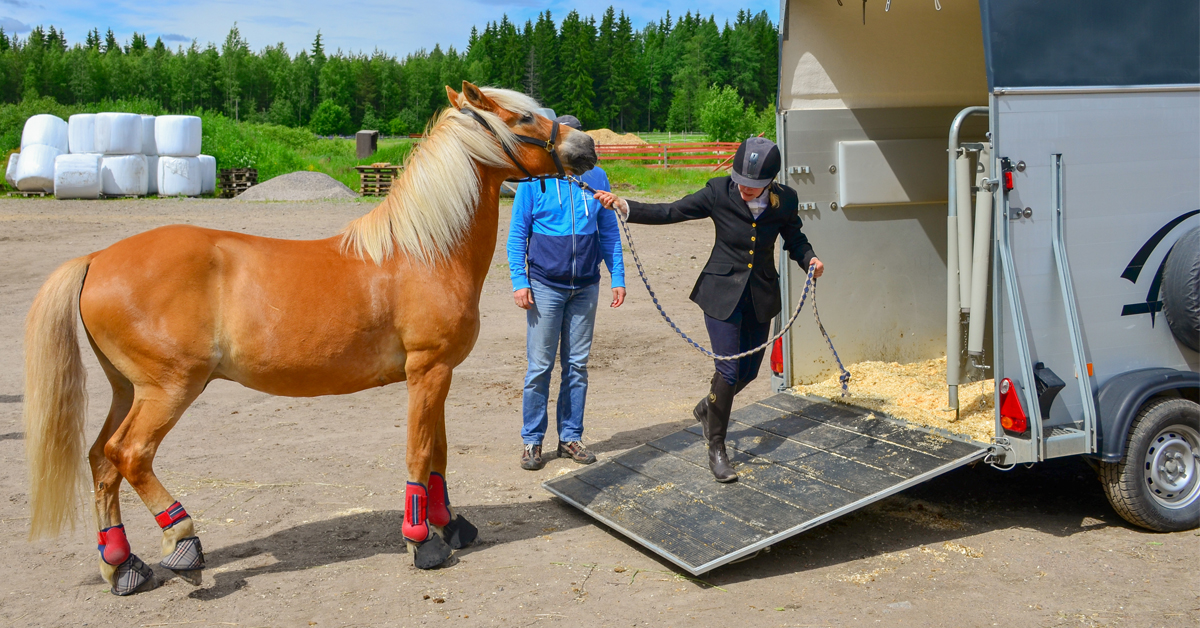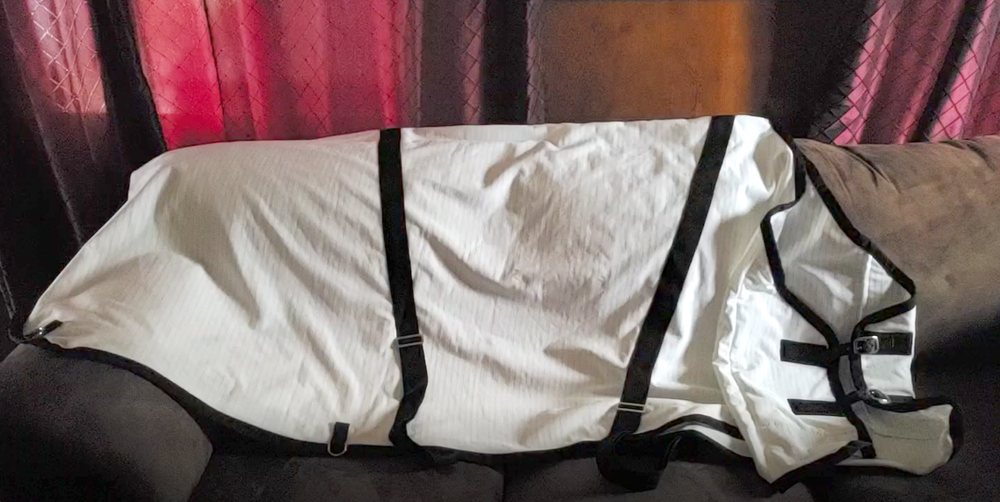Travel trauma in the form of motion sickness in horses is believed to exist, but difficult to prove, as horses do not have the ability to regurgitate like other mammals (dogs, cats and people). They instead tend suffer from stress and dehydration that can lead to colic.
Joe Wilson of D-Day Wear®, a clothing brand out of Guelph, Ontario, started posing questions about equine motion sickness to people in the equine industry, from veterinarians to professional riders. “I learned it has a direct connection to static electricity and the build-up of static in a horse trailer that affects the horses vestibular system which, in turn, directly affects their balance and equilibrium,” he says. He began by developing a car seat mat for a young woman who suffered from motion sickness made out a specific blanket material made from a polyester blend with a carbon fiber strip that dissipates static. The results were very encouraging.
“It is a patented material made right here in Canada that was created for removing static from chaff in grain elevators that could spontaneously combust,” he says.
While static and motion sickness in humans and dogs has been well-documented, there is currently no controlled research that has been conducted into this theory where equines are concerned, Wilson has confidence in his product. “Right now we are in the initial stage of R&D for the use of this particular fabric,” he explains. “We know that the patented material used works for what it was originally designed for and we are looking to see if it can be repurposed to alleviate travel trauma in the equine industry. Perhaps down the road we can look into further testing once this initial phase of testing is complete and the results warrant further documentation.”
Wilson is currently looking for three prototype testers ‒ owners of horses anywhere in Canada with historically bad shipping experiences. “I would like to have a few people with bad shippers to test them to see if it alleviates the travel trauma that horses suffering from motion sickness endure.” He has three blankets ‒ one 76″, one 78″ and an 80″ ‒ available for testing.
“We will supply a blanket and a summary sheet for the participants to chart the use of the blanket and to get some unbiased feedback of the prototypes’ effect on their horse. People involved in the testing will be able to keep the prototype for their horse.”
The current prototype is white with black carbon fiber; the plan is for the black trim and bands to be available in a variety of colours so that people can personalize it to their stable colours. The blankets will retail for between $400-$500 and hopefully will be ready for the summer of 2021, when they will be promoted at equine events and available to order online.
Joe Wilson can be reached at ani@ody.ca or ddaywear@gmail.com or at (519) 826-0529.
More from News:






